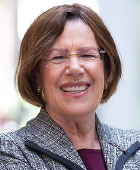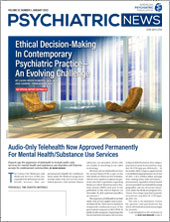“The First Wave,” a National Geographic documentary by an Oscar-nominated filmmaker about the grievous impact of the novel coronavirus on a New York City hospital in March 2020, was released several months ago. If you haven’t seen it, you’re missing an accessible but deep understanding of the most critical medical event of this century. The doctors and health care workers in the emergency departments and intensive care units were confused, terrified, and exhausted. Most psychiatrists did not have to endure such circumstances at work, but those who did had inadequate protection and put their own lives at risk. Many psychiatrists and residents were eventually reassigned to provide direct care to COVID-19 patients.
Most of the public never saw what was inside the hospitals—numerous desperately ill, dying patients—until they saw this documentary. Those health care workers continue to suffer from the trauma of the ongoing pandemic as we are closing in on year two. The film also shows how social determinants of health impacted communities of color and minoritized people to a far greater extent than White communities, with significantly increased numbers of illness and deaths. At the pandemic’s peak, there were 1,000 deaths a day, mostly people living in minoritized communities. Our health care workers are still struggling. Some physicians have said their mental health has been destroyed by inadequate support, planning, allies, and resources.
Especially now, as the holiday season ends and the pandemic continues, it is important to take stock. Other threats—general violence in schools, on airlines, in stores, and on the political stage—are increasing. With tremendous changes in our social connections and the way we communicate with each other, the start of a new year offers us the opportunity to renew our focus on compassion, generosity, volunteering, altruism, and taking care of one another. The holiday season that we just enjoyed allowed many of us to restore traditions and rebuild bonds with family, friends, and loved ones and remember those whom we lost, especially during the pandemic. We regained a sense of our history and connection with previous generations. Remembering the past can help put the present into perspective. And it may also help to be thoughtful about the future. Reducing stress and taking time to relax this winter are critical for our mental health.
The APA Presidential Task Force on Social Determinants of Mental Health is busy working on addressing clinical, research, educational, policy, and public health implications to improve the lives of populations of people. By preventing these mental health determinants from affecting large communities, the burden is shifted from the individual to the system. For structural problems, structural solutions are needed. Private and public sector partners can help to form coalitions that produce new social policies so that the devastating discrimination documented in 2020 and 2021 will not happen again.
We look forward to creative solutions in 2022 that will change the dialogue and construct new paradigms for psychiatry—ones that are effective and efficient and the right thing to do. ■

